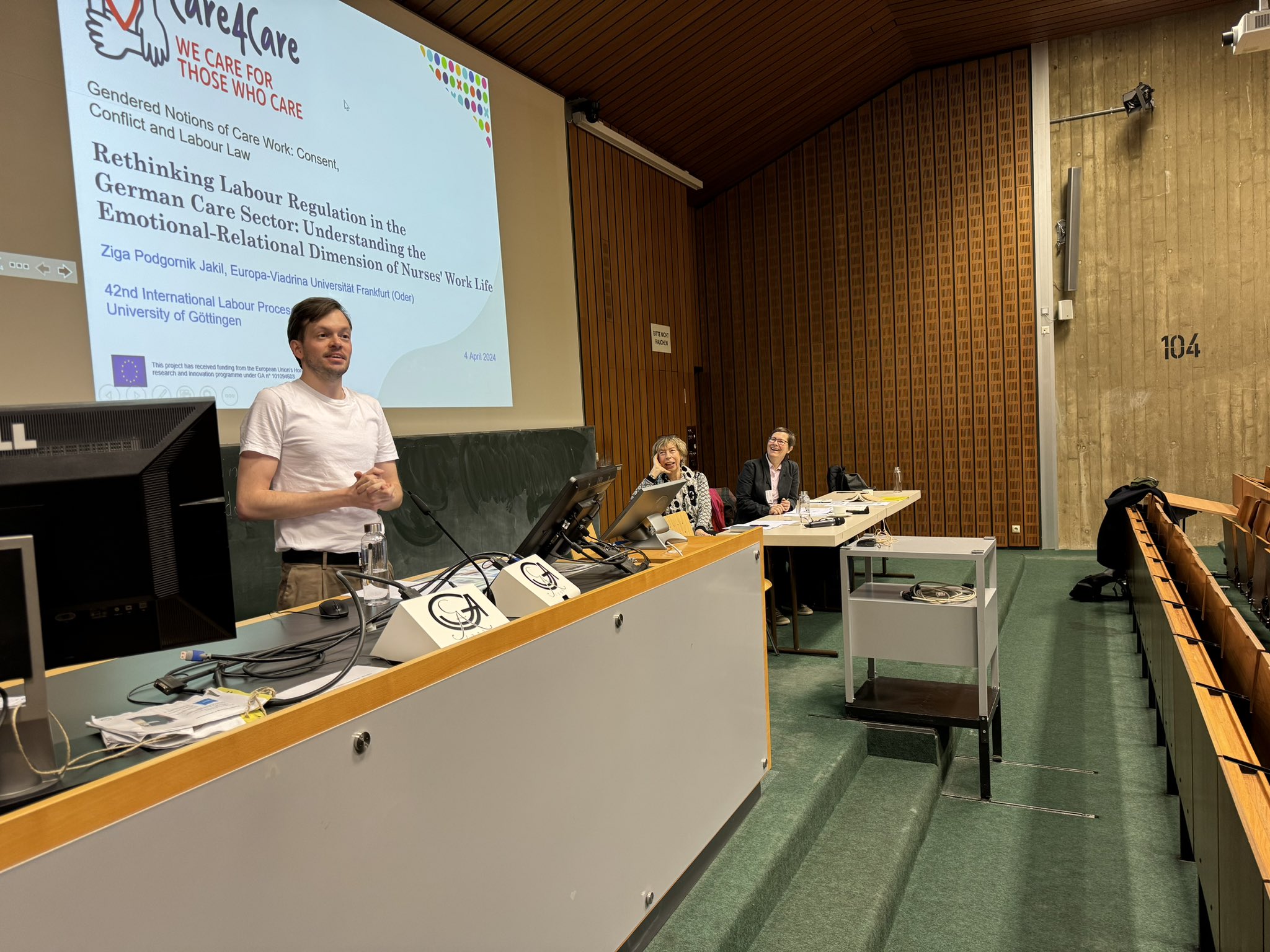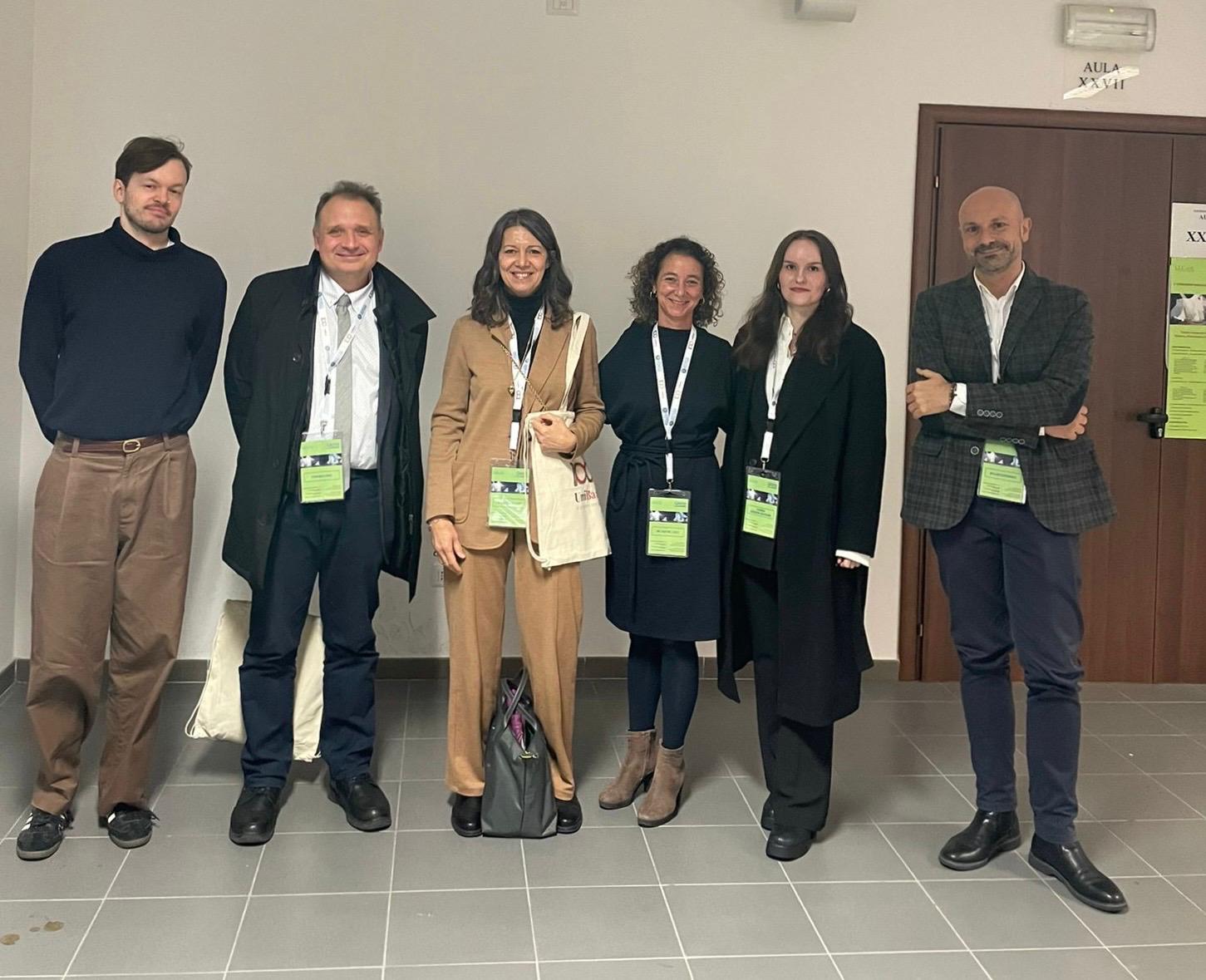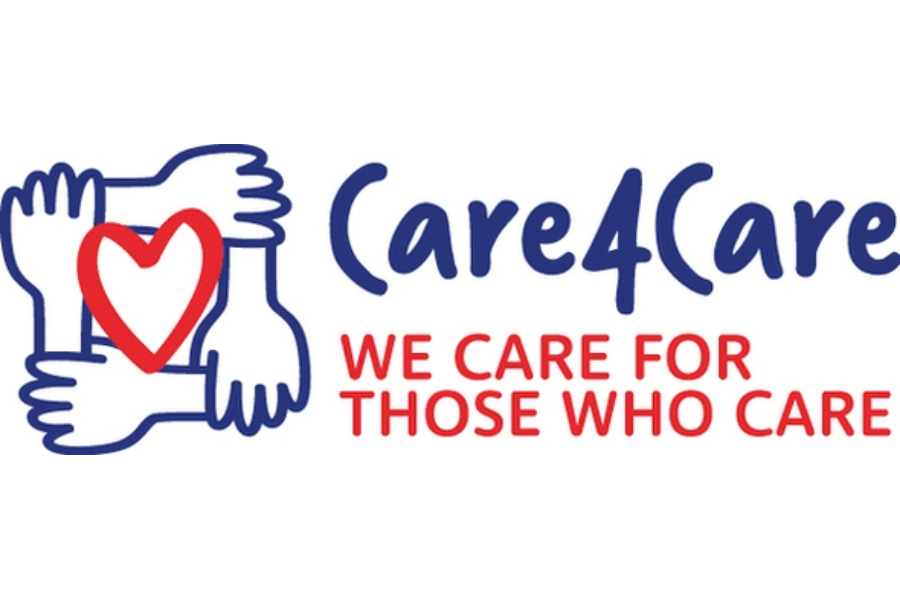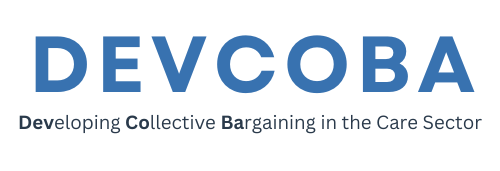C*LLaS
We Care for Those who Care (Care4Care)
Research project within the framework of the Horizon Europe 2022 grant.
Funding period: January 2023 – December 2025
Website des Care4Care Consortiums
European University Viadrina Frankfurt (Oder) Research Unit
Project Leadership
Prof. Dr. Eva Kocher, EUV, Juristische Fakultät, Center for Interdisciplinary Labour Law Studies (C*LLaS)
Research Team
Dr. Ziga Podgornik Jakil, EUV, Juristische Fakultät, Center for Interdisciplinary Labour Law Studies (C*LLaS)
Dominic Andres, Juristische Fakultät, Center for Interdisciplinary Labour Law Studies (C*LLaS)
Project Objectives
With the ageing population and the increasing number of people needing personal assistance, the care sector is becoming vital to the future of the European Union (EU). However, the care sector in the EU suffers from chronic labour shortages and care workers frequently report low wages, precarious working conditions, high physical workloads, and discrimination in the workplace. In addition, women, who make up the majority of care workers, and migrants, who are increasingly being recruited to fill labour shortages in the care sector, especially as “live-in” domestic workers, are particularly affected by exploitation and discrimination. To address these issues effectively, the existing legal framework for regulating the care sector and care workers' access to the right legal instruments at EU level need to be improved.
The Care4Care project aims to examine, in a comparative and multidisciplinary perspective, the working conditions of care workers and the factors that increase the risk of their discrimination and social exclusion in six EU Member States (France, Germany, Italy, Poland, Spain and Sweden). The study consists of a socio-legal analysis and an empirical investigation of the workplace experiences of care workers in each country. The units of analysis include paid care workers providing health and personal care in institutions or in home care, including nurses in hospitals, geriatric and paediatric care workers, and care workers caring for people with disabilities.
The main objective of the project is to develop appropriate tools to improve job quality and combat discrimination in the care sector. It aims to create a model for the analysis and regulation that can be replicated in different EU countries and generate new relevant intervention strategies for the European institutions. In concrete terms, this will be implemented in three project deliverables: a policy paper, a training program for care workers' representatives, and a web platform for care workers.
An important goal is to give care workers and their representatives a say in the design and implementation of policies and instruments that affect their lives. For this reason, the project partners will work with various stakeholders, including trade unions, family and employer organizations, equality and monitoring bodies, policy makers and care workers themselves. The vision is that improving the working conditions and representation of care workers will lead to an improved quality of care services provided.
The Care4Care Consortium is coordinated by a team at University of Florence (Italy) and involves 10 partners: Lunds Universitet (Sweden), Universidad de Girona (Spain), Universidad de Sevilla (Spain), Europa - Universität Viadrina (Germany), Uniwersytet Rzeszowski (Poland), Tuscan Organisation of Universities and Research 4 Europe (Belgium), Université de Bordeaux (France), European Federation for Family Employment & Home Care (EFFE) (Belgium) and European Federation for Services to Individuals (Belgium).
The focus in Germany is carried out with a research unit headed by Prof. Dr. Eva Kocher at the European University Viadrina Frankfurt (Oder). The main objective of the German research unit is to develop proposals for policy measures needed to improve working conditions and reduce inequalities in the care sector at EU level.
Publications:
Workpackage 2 - Care Workers, Job Quality, and Inclusive Working Conditions (Germany)
Workpackage 3 - ‘Discrimination Map’ and inequalities in care sectors (German)
Workpackage 5 - CARE4CARE Policy Paper
Partner Work Packages in progress.
Events as part of the Care4Care project:
Labour Law Research Network Conference (LLRN6)
When and where: 25-27 June 2023, University of Warsaw (Poland),
Session: The role of intermediaries in shaping domestic and care work in Europe, Latin America and South Africa
Presenters: Eva Kocher (Europa-Universität Viadrina Frankfurt (Oder)): Posting agencies in transnational live-in-care; Lorena Poblete (Universidad Nacional de San Martín, Argentina; Europa-Universität Viadrina Frankfurt (Oder) - Alexander von Humboldt Stiftung): Within and without the margins of labor law. Digital intermediaries on domestic work in Argentina, Chile, Brazil, and Mexico
8th Regulating for Decent Work Conference: Ensuring decent work in times of uncertainty
When and where: 10-12 July 2023, International Labour Organization (Geneva, Switzerland)
Session: Formalising Paid Domestic Work (I): New Regulations and Policies to Enforce Workers’ Rights

Presenter: Eva Kocher (European University Viadrina Frankfurt (Oder)): Formality and Informality in the German Discourse on “Legal Certainty” for Live-in Work
42. International Labour Process Conference (ILPC) in Göttingen: Coercion, Consent and Conflict in the Labour Process and Beyond
When and where: 3-5 April 2024, University of Göttingen
Symposia: Gendered Notions of Care Work: Consent, Conflict and Labour Law

Organisers of the Symposia (with presentation titles): Eva Kocher (European University Viadrina Frankfurt (Oder)): Gendered Narratives about Conflict and Care in German and EU Labour Law; Helma Lutz (Goethe University Frankfurt/Main): The gendered commercialization of migrant care-work in current European senior care; Lorena Poblete (CONICET-UNSAM, Buenos Aires): How to make the law available for migrant care workers? Legal counselling through social media in Germany; Ziga Podgornik Jakil (European University Viadrina Frankfurt (Oder)): Understanding the Emotional-Relational Dimension of Nurses' Work Life.
4th Annual Conference and Meeting of the Labour Law Community (LLC)
When and where: 15 - 16 November 2024 Università degli Studi di Bari Aldo Moro (Bari, Italy)

Session: Improving Working Conditions and Fighting Discrimination in the Care Sector: A Comparative Legal and Psychosocial AnalysisPresenter: Ziga Podgornik Jakil (European University Viadrina Frankfurt (Oder)): National Report about the Working Conditions and Discrimination in the German Care Sector
Workshop, 17. Oktober 2025, 10.00-16.00 Uhr, Berlin



Veranstaltungsort: Bundesstiftung Gleichstellung, Karl-Liebknecht-Str. 34, 10178 Berlin
Altenpflege und Kinderbetreuung - Strategien gegen Personalmangel und prekäre Arbeitsbedingungen
eine Kooperationsveranstaltung der EU-Projekte “Care4Care: We Care for those who Care” und “DEVCOBA – DEVeloping COllective BArgaining in the Care Sector” sowie des Deutschen Instituts für Interdisziplinäre Sozialpolitikforschung (Forschungsfeld 4)
Soziale Dienstleistungstätigkeiten, wie die Altenpflege oder der Kitabereich, stehen immer wieder aufgrund herausfordernder Arbeitsbedingungen, mangelnder existenzsichernder Absicherung im Lebensverlauf und eklatantem Personalmangel im Fokus der Öffentlichkeit und der Wissenschaft. Dass der Fachkräftemangel eines der gravierendsten Probleme dieser Zeit in diesen von Frauen dominierten Feldern ist, ist schon lange bekannt – und dennoch fehlt es an konkreten Lösungsansätzen. Wie kann dem Fachkräftemangel in diesen Bereichen nachhaltig begegnet werden? Welche Schritte sind notwendig, um Arbeitsschutzkonzepte, Karriereverläufe und die Qualität der Care-Arbeit richtungsweisend zu verbessern? Was plant die neue Bundesregierung, um mehr Gleichberechtigung in den überwiegend von Frauen in Teilzeit ausgeübten Care-Tätigkeiten zu erreichen, den aktuellen Problemlagen entgegenzuwirken und die Sozialpartnerschaft in diesen Bereichen zu stärken?
In diesem Workshop diskutieren wir über die Herausforderungen des Personalmangels, prekäre Arbeitsbedingungen (wie unplanbare und überlange Arbeitszeiten, Stress, emotionale Belastungen, gesundheitliche Risiken, Gewaltsituationen), wegweisende Arbeitsschutzkonzepte, Existenzsicherung im Lebensverlauf und über die Rolle von Staat und Tarifparteien bei der Gestaltung der professionellen Care-Arbeit. Ziel ist es, einen transferorientierten Dialog zwischen Wissenschaft, Sozialpartnerschaft, Politik und Praxis zu führen, um gemeinsam konkrete Maßnahmen für soziale Dienstleistungstätigkeiten zu erarbeiten.
10h Begrüßung
Prof. Dr. Eva Kocher (C*LLaS Europa-Universität Viadrina Frankfurt (Oder)) /
Dr. Ruth Abramowski (SOCIUM und DIFIS, Universität Bremen)
10.15h Präsentation der Ergebnisse des EU-Projekts „Care4Care“
Prof. Dr. Eva Kocher / Dr. Žiga Podgornik Jakil
(C*LLaS Europa-Universität Viadrina Frankfurt (Oder))
10.45h Präsentation der Ergebnisse des EU-Projekts „DEVCOBA“
Dr. Ruth Abramowski (SOCIUM und DIFIS, Universität Bremen)
11.30h Kaffeepause
12.00h Diskussion zum Thema
„Personalmangel in den Care-Berufen – Was ist zu tun?“
Inputs von Grit Genster (ver.di) und Leon Virchow (Arbeitgeberverband Pflege)
13.00h Mittagspause
13.45h Diskussion zum Thema
„Arbeitsplatzsicherheit und -qualität – Welche Schritte sind notwendig?“
Mit Inputs von Uwe Ostendorff (ver.di) und Katharina Owczarek (Diakonie)
14.45h Diskussion über Regulierungsperspektiven
Mit Inputs von Vertreterinnen und Vertretern
aus der Politk und des DGB
15.45h Abschluss
Anmeldung
Für die Anmeldung nutzen Sie bitte diesen Link
Kontakt
Dr. Ruth Abramowski (ruth.abramowski@uni-bremen.de)


